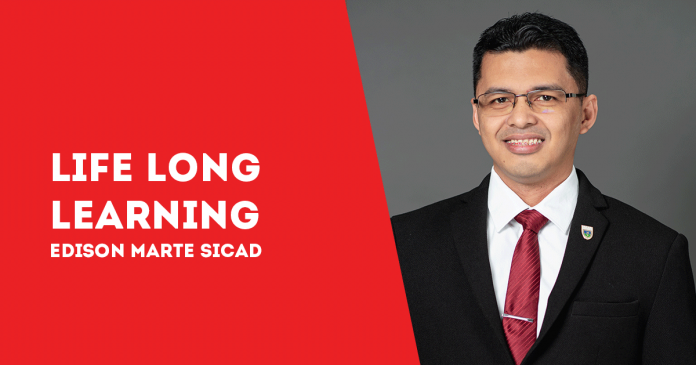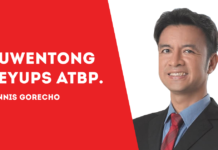
BY EDISON MARTE SICAD
THIS MAY sound counterintuitive. And maybe, even not possible. It is like making a list of things to forget—and reminding yourself to make sure you have forgotten what is in your list.
During my teaching career, and even in my tutorials, some students would ask, “Why do I need to learn all of this? Will I be using these lessons in the future?”
My initial reaction is that the student is only finding an excuse to not learn. That the complain has nothing to do with utility but with expediency.
My question is, “Is personal interest a prerequisite for learning to happen?”
There is one part of the lesson plan that I find stressful: having a motivation activity before the lesson. Imagine doing this in every class. Considering all the other duties a teacher is required to comply with, this is almost a miraculous phenomenon—especially when the teacher is demotivated.
A true reader must have more books unread.
I learned a lot from Umberto Eco, Jose Rizal, and Miriam Defensor-Santiago.
Umberto Eco is known to have 50,000 books. The more you read his works, the more you will realize how less you know. His works are hated by some writers. Critics would say that he writes to show off his vast, esoteric knowledge. But I love him for that. When I read his novels, every page is a learning experience.
Jose Rizal was also into books. It was a priority in his budget allocation. As a polyglot, he read books in German and French, among others. One of my reading goals is to read the books Rizal had read. Of course, part of it is to read Rizal’s own writings (in a good English translation).
These past few days, I spent time (re)watching senate hearings and videos of Miriam Defensor Santiago. Hearing her speak inspires me to be patriotic. She is one of those rare public officials whose sincerity in public service reached out to the youth in the most natural way.
Her home library was shown in a documentary. It is my goal, if it is allowed, to visit her library and browse her collection of books.
Should family homes have a library?
The answer would be no. This is not an essential need of most homes. Nowadays, what is considered a very important home fixture is Wi-Fi, 24/7 unlimited access.
Connection to the internet is also a good excuse to not have a home library. Anyway, the internet has more resources for research and studying. Yeah, right.
Home libraries are somehow a luxury of sort. It needed space, shelves, furniture, good ventilation (aircon), and silence. Of course, books. But reading books is not a popular pastime of many Filipinos. And therefore, is not included in the family budget or personal expenses—unlike coffee.
But there are families who maintain a home library. It could be a meager collection of books, or an elegant, expensive collection of scholarly materials and masterpieces of literature.
If the home is the first school. And parents are the first teacher. Then, the first library must also be at home.
Real education begins after graduation.
If some of us complain during our student life that we are forced to learn things, that we are not given the freedom to learn what we ought to learn, and that learning in school is not truly reflected in our grades and awards, then, as a graduate, you are now set free.
The sad part is that some of us do not know how to learn on our own.
And if, before, we blame the school, the teachers, and the food in the cafeteria, now we blame our superiors, our colleagues, and still, the food in the cafeteria.
As an analogy, contextualize this saying: “The real problem is not the lack of money. The real problem is the lack of ideas to have money.”/PN



